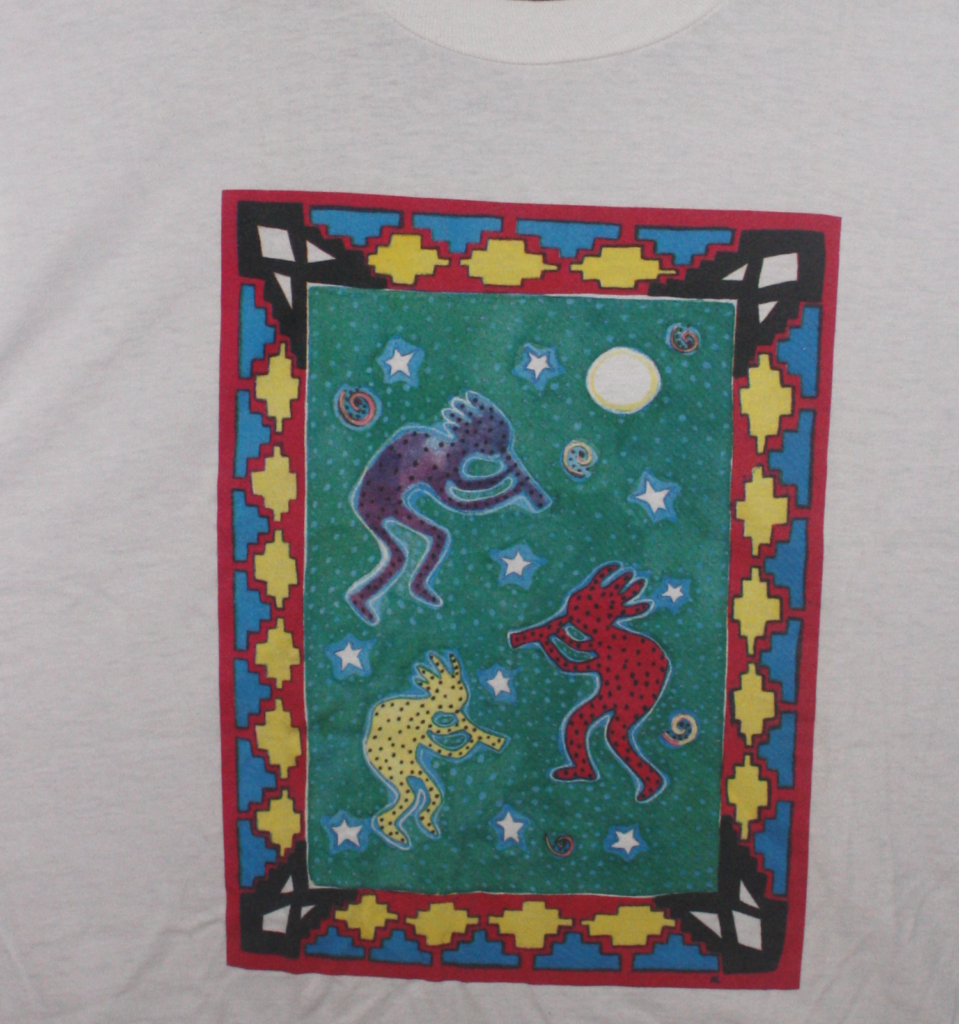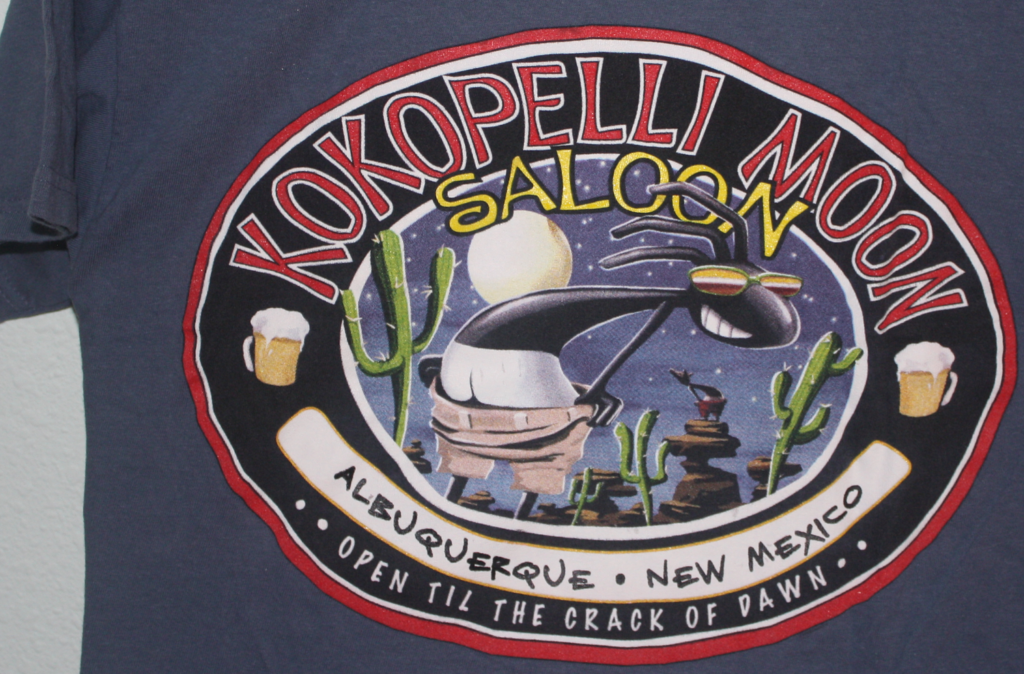Little black figures with antennae and a flute — hunched over. Tour the Southwest, and it’ll be hard to find a tourist trap that doesn’t sell a t-shirt like this. The figure is Kokopelli, indigenous god of fertility in the American Southwest: childbirth, bounteous harvests, plentiful wild game. You know the drill.


Okay, the Kokopelli on this t-shirt are multi-colored. The artist probably couldn’t bear one more black Kokopelli. But you can see at right the “modern Kokopelli” of consumer goods.
Kokopelli’s also the spirit of music, and especially a trickster god. Any god in charge of pregnancy was going to be, right?
Anyway, Kokopelli belongs to the Hopi, the Zuni, the Navaho, and other tribes stretching from Arizona east deep into the dry Southwest.
Kokopelli drawings found on ancient artifacts often sport a giant phallus. Standard equipment for a fertility god, sure, but perhaps not so welcome for a family friendly gift shop in Santa Fe. So modern Kokopelli is more or less an eunuch.
The Kokopelli hunchback is disputed; The Hopi believed that Kokopelli brought unborn children on his back to distribute to young Hopi women — who weren’t always crazy about the idea. Others say the humpback could was inspired by traders who carried goods on their back and played a flute to make their presence known. Other legends hold that the sack contained gifts, or songs. I doubt that there’s only one truth to be had here.
If you live in the Southwest, you’ve no doubt seen enough tourist Kokopelli to last you a lifetime. For you, there’s another t-shirt: from a Colorado company that at one time had a whole line of Kokopelli-in-the-modern-world t-shirts.

And no, that bar never existed. Trickster god, right?
